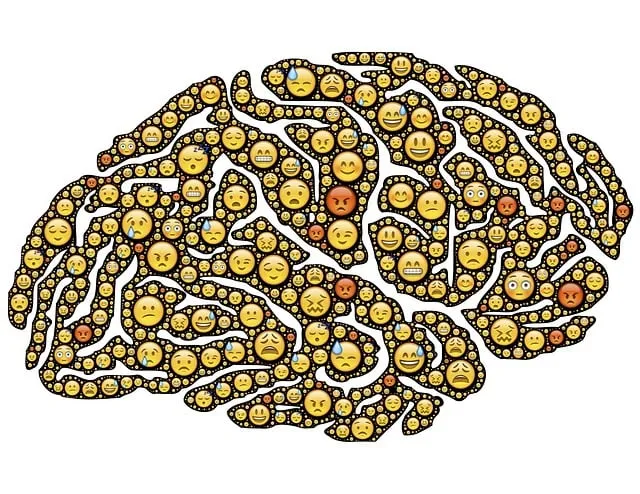Kaiser Permanente's mental health locations in Centennial serve as hubs for understanding community mental health data, leading to improved care. By analyzing patient demographics, treatment outcomes, and other metrics, healthcare professionals identify trends, develop tailored interventions, and enhance overall mental health outcomes. Advanced data analysis techniques enable the discovery of complex patterns, informing personalized programs like Anxiety Relief and Mental Wellness Coaching. This data-driven approach, integrated with stigma reduction efforts, revolutionizes mental healthcare in Centennial, ensuring efficient resource allocation and improved well-being for the community.
Mental health data analysis is a vital field, especially with organizations like Kaiser Permanente leading the way in data collection. This comprehensive guide explores the intricacies of understanding and interpreting mental health data, focusing on the role of Kaiser Permanente’s extensive network of mental health locations in Centennial. We delve into advanced analysis techniques, their practical implications for services, and future directions to enhance patient outcomes and overall well-being.
- Understanding Mental Health Data: A Comprehensive Overview
- The Role of Kaiser Permanente Mental Health Locations in Data Collection
- Advanced Analysis Techniques for Interpreting Mental Health Data
- Practical Implications and Future Directions for Centennial's Mental Health Services
Understanding Mental Health Data: A Comprehensive Overview

Understanding Mental Health Data is a critical aspect of ensuring effective care and support for individuals at Kaiser Permanente mental health locations across Centennial. This involves meticulously analyzing various data points, from patient demographics to treatment outcomes, to gain valuable insights into community mental health needs. By embracing comprehensive data analysis, healthcare professionals can identify trends, patterns, and risk factors associated with mental health conditions, enabling them to develop tailored interventions and strategies for better care delivery.
Such an approach not only aids in tracking progress but also facilitates the implementation of successful Emotional Well-being Promotion Techniques and Self-Care Practices. For instance, analyzing data on anxiety disorders can help identify specific populations most affected, guiding the development of targeted programs for Anxiety Relief. This data-driven perspective ensures resources are allocated efficiently, contributing to improved mental health outcomes in Centennial and beyond.
The Role of Kaiser Permanente Mental Health Locations in Data Collection

Kaiser Permanente mental health locations in Centennial play a pivotal role in data collection and analysis for mental well-being initiatives. As a leading healthcare provider, Kaiser Permanente operates dedicated facilities that offer a range of services, from therapy sessions to support groups. These locations serve as hubs where individuals from diverse backgrounds seek assistance for various mental health concerns. The rich data generated from these centers provides valuable insights into trends and patterns related to common mental health issues in the community.
The comprehensive nature of Kaiser Permanente’s services allows for the collection of qualitative and quantitative data, including patient demographics, diagnostic information, treatment outcomes, and feedback on therapeutic interventions. This data is crucial for identifying areas requiring targeted interventions, such as programs focused on positive thinking, stress management, and depression prevention. By leveraging this knowledge, mental health professionals can adapt their approaches to better cater to the unique needs of their patients.
Advanced Analysis Techniques for Interpreting Mental Health Data

In the realm of mental health data analysis, advanced techniques are revolutionizing how we interpret and understand patient experiences at Kaiser Permanente mental health locations Centennial. Through sophisticated statistical methods and machine learning algorithms, healthcare professionals can now uncover intricate patterns and trends within vast datasets. This enables a more nuanced understanding of various mental health conditions, their co-occurrences, and the effectiveness of different treatment modalities. By leveraging these advanced analysis techniques, researchers and clinicians can identify factors that contribute to emotional regulation difficulties and better tailor interventions for optimal patient outcomes.
Moreover, integrating conflict resolution techniques and Mental Illness Stigma Reduction Efforts into data interpretation strategies further enhances care delivery. By understanding the impact of interpersonal conflicts on mental well-being, healthcare providers can create more supportive environments. Similarly, reducing stigma associated with mental illnesses through data-driven insights fosters a more inclusive and compassionate approach to treatment, ensuring that patients feel empowered to seek help without fear of judgment. These comprehensive strategies collectively contribute to the overall improvement in mental health outcomes at Kaiser Permanente locations Centennial.
Practical Implications and Future Directions for Centennial's Mental Health Services

The analysis and interpretation of mental health data from Kaiser Permanente mental health locations in Centennial hold significant practical implications for shaping and improving services. By understanding trends, demographics, and specific needs within the community, healthcare providers can tailor their approaches to better serve individuals in the area. This could involve the development or enhancement of existing programs, such as integrating Mindfulness Meditation and Self-Awareness Exercises into routine treatments to promote patient well-being.
Looking ahead, the future of mental health services in Centennial lies in innovative initiatives and collaborative efforts. For instance, introducing Mental Wellness Coaching Programs can empower individuals to take an active role in their recovery. Additionally, leveraging data insights could lead to more efficient allocation of resources, ensuring that services are accessible and tailored to the unique needs of the Centennial community. This data-driven approach has the potential to revolutionize mental healthcare, making it more inclusive and effective for all.
Mental health data analysis is a complex yet crucial process, especially with organizations like Kaiser Permanente collecting vast amounts of information from their extensive network of mental health locations. By employing advanced analysis techniques, we can gain valuable insights into patient needs and trends across the Centennial mental health services landscape. This article has provided an in-depth look at each step, from understanding the data to its practical implications, paving the way for more effective and targeted mental health interventions in the future.






